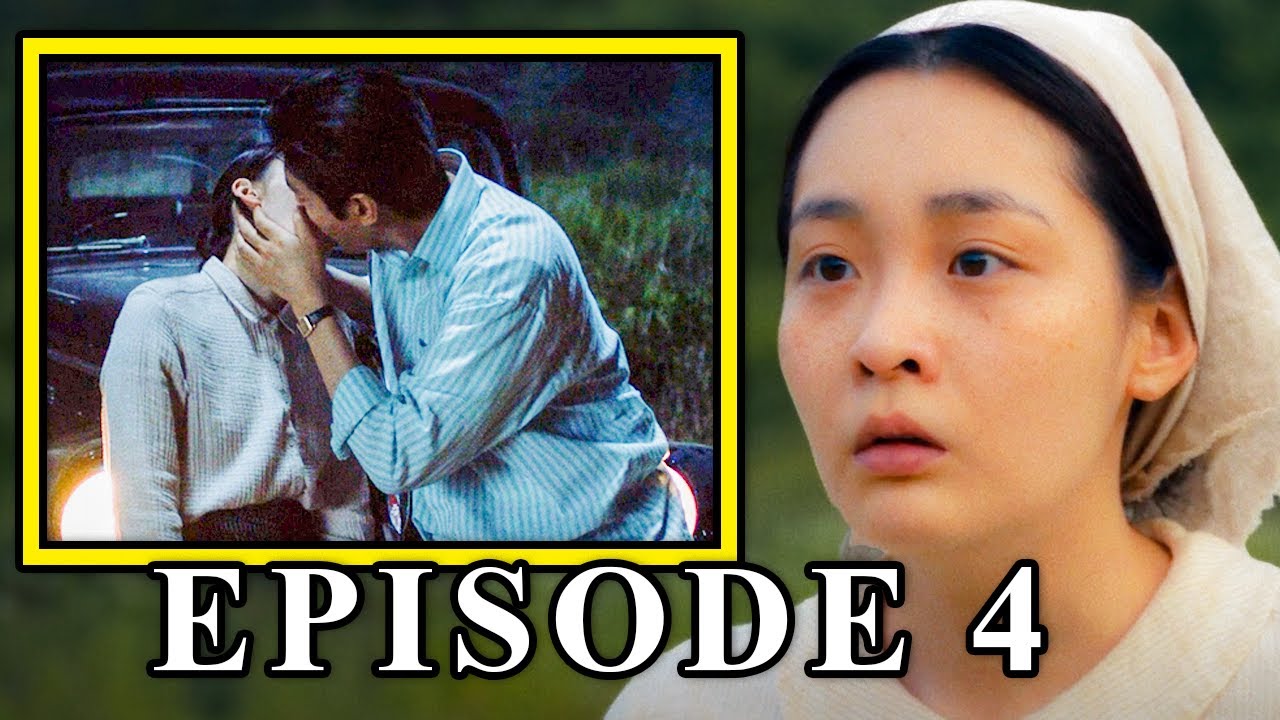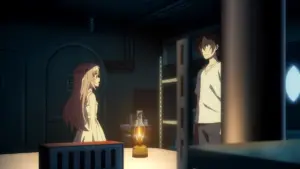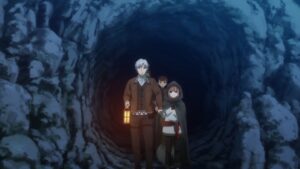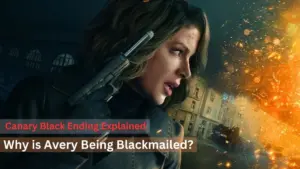Pachinko season 2 Episode 4 delivers an emotionally rich exploration of identity, relationships, and the scars of history. The series continues its compelling narrative through the intricate lives of Sunja, Mozasu, Noa, and Solomon, examining the struggles they face across different generations. Episode 4 is full of poignant moments, offering plenty to reflect on, from the question of Korean identity to the tangled relationships between characters.
Table of Contents
If We Aren’t Korean, Then What Are We?

A particularly impactful line in this episode comes from young Mozasu, who asks, “If we aren’t Korean, then what are we?” This question encapsulates the central theme of Pachinko—identity. As Koreans living under Japanese rule, the characters constantly grapple with what it means to be Korean. Is it simply speaking the language, or must there be an inherited resentment toward the Japanese? The show presents this tension beautifully, with different characters expressing their struggles with identity in distinct ways. Sunja tells Mozasu’s grown son later in the episode, “Don’t forget your roots,” a phrase echoing throughout generations.
The question of remembering one’s roots becomes a key theme, especially as the characters evolve and their experiences shape their understanding of who they are. In a poignant moment, Sunja’s mother reminds her family not to forget their bloodline. While their circumstances may have changed, and they may have more food on their table now, the ties to their heritage remain strong.
What Does Noa Witness in the Field?
The episode starts with Mozasu sharpening weapons in anticipation of the American arrival, but the real emotional drama lies between him and Noa. Mozasu, feeling neglected as Mr. Kim seeks out Noa, wrestles with feelings of jealousy. Mr. Kim explains that Noa carries the burden of the family’s future, which Mozasu fails to understand.
Noa’s storyline takes an unexpected turn when the class bully, a Japanese boy, apologizes for his past behavior. The boy explains how his father beat him for not outperforming a Korean classmate, a realization that hits Noa hard. The shared “daddy issues” highlight the generational traumas, with both Japanese and Koreans dealing with their own forms of inherited pressure.
Meanwhile, Mr. Kim grows closer to Kyung-Hee, the tension between them becoming harder to ignore. Their connection builds slowly, but his affection for her becomes more visible with each passing day.
Sunja’s Reunion With Her Mother
Hansu’s unexpected return with Sunja’s mother from Busan creates a melancholic reunion, but one filled with emotional warmth. They sit down for dinner, and when Sunja’s mother hesitates to eat the generous portion of rice, Sunja insists that scarcity is no longer an issue. This small yet powerful exchange symbolizes their changing fortunes and the difficult past they’ve left behind.
A conversation between Mozasu and his grandmother about lions in Africa leads to another reminder of their heritage. With her hand on Noa’s chest, the grandmother reminds him of the Korean blood flowing through his veins, underscoring the weight of ancestral history in their lives.
The Relationship Between Sunja and Hansu Takes a Surprising Turn
During dinner, Hansu invites Sunja out for a drive, seizing the opportunity to spend time alone with her. They share a moment of vulnerability when their car gets stuck in the mud. The physical effort of pushing the car seems to heighten their emotions, leading to an unexpected kiss. But reality quickly sets in, and Sunja pulls away, realizing she cannot continue this affair.
Hansu, clearly still in love with Sunja, finds himself frustrated by his feelings. Sunja, on the other hand, remains devoted to her late husband, despite Hansu’s deep connection with her. Later, her mother instinctively recognizes Hansu as Noa’s father and warns Sunja that Noa can never know the truth.
Meanwhile, Hansu’s frustrations boil over when he violently confronts a man who stole chickens from him. Noa witnesses this outburst, and it shocks him deeply. The stark difference between Hansu’s brute strength and his own father’s demeanor becomes glaringly apparent, leaving Noa questioning his own nature. Is he more like Hansu than he ever realized?
What Happens to Solomon’s Deal?
The parallel storyline in the modern-day timeline follows Solomon, who faces an ethical and personal crossroads. Sunja, after waking from a bad dream, reaches out to him, sensing something is wrong. Solomon is on the cusp of closing a significant deal with Naomi when Sunja arrives unannounced at his Tokyo apartment. While Solomon’s concerned about the deal, Sunja’s presence brings a sense of family and tradition to the otherwise business-focused atmosphere.
During a meal with Sunja and Naomi, Solomon gets the news that his plan worked: Colton Hotel has backed out of the deal. While Solomon celebrates his success, Sunja becomes uneasy, fearing that he has exploited someone vulnerable to achieve his goals. Her worries deepen when she realizes that Solomon has likely gone against his values, pursuing success at any cost rather than staying true to his heritage.
Despite the professional victories, Solomon’s journey is not entirely without joy. His relationship with Naomi deepens, and they share a romantic moment once Sunja leaves. The tension between his Korean roots and his desire to succeed in the Japanese world continues to drive Solomon’s story forward.
Sunja’s New Beginning and the Symbolism of the Burned Rice Shed
The episode concludes with a symbolic moment for Sunja. She contacts Kato, the man she met earlier, hinting at a potential new chapter in her life. After years of loss and hardship, Sunja finally seems open to finding happiness again. Her complicated history with Hansu and her loyalty to her late husband have kept her in emotional limbo for years, but now she’s ready to move forward.
The past timeline closes on a devastating note as the rice shed, a symbol of the family’s hard work, burns to the ground. Kyung-Hee runs into the forest, overwhelmed by the realization that disaster will keep striking. Mr. Kim comforts her, and in this moment of vulnerability, the two finally acknowledge their feelings for one another. As they stand together, the boundaries of master and servant dissolve, leaving only two people facing an uncertain future together.
Episode 4 of Pachinko season 2 is an emotionally charged exploration of identity, family, and the weight of history. With powerful performances and thoughtful storytelling, it continues to unravel the complex lives of its characters while keeping the audience captivated. Sunja’s journey, in particular, reflects the push and pull between past and present, as she navigates love, loyalty, and the lingering effects of her choices. As the season progresses, Pachinko only deepens its rich tapestry of themes, making us question what it truly means to honor one’s roots.











